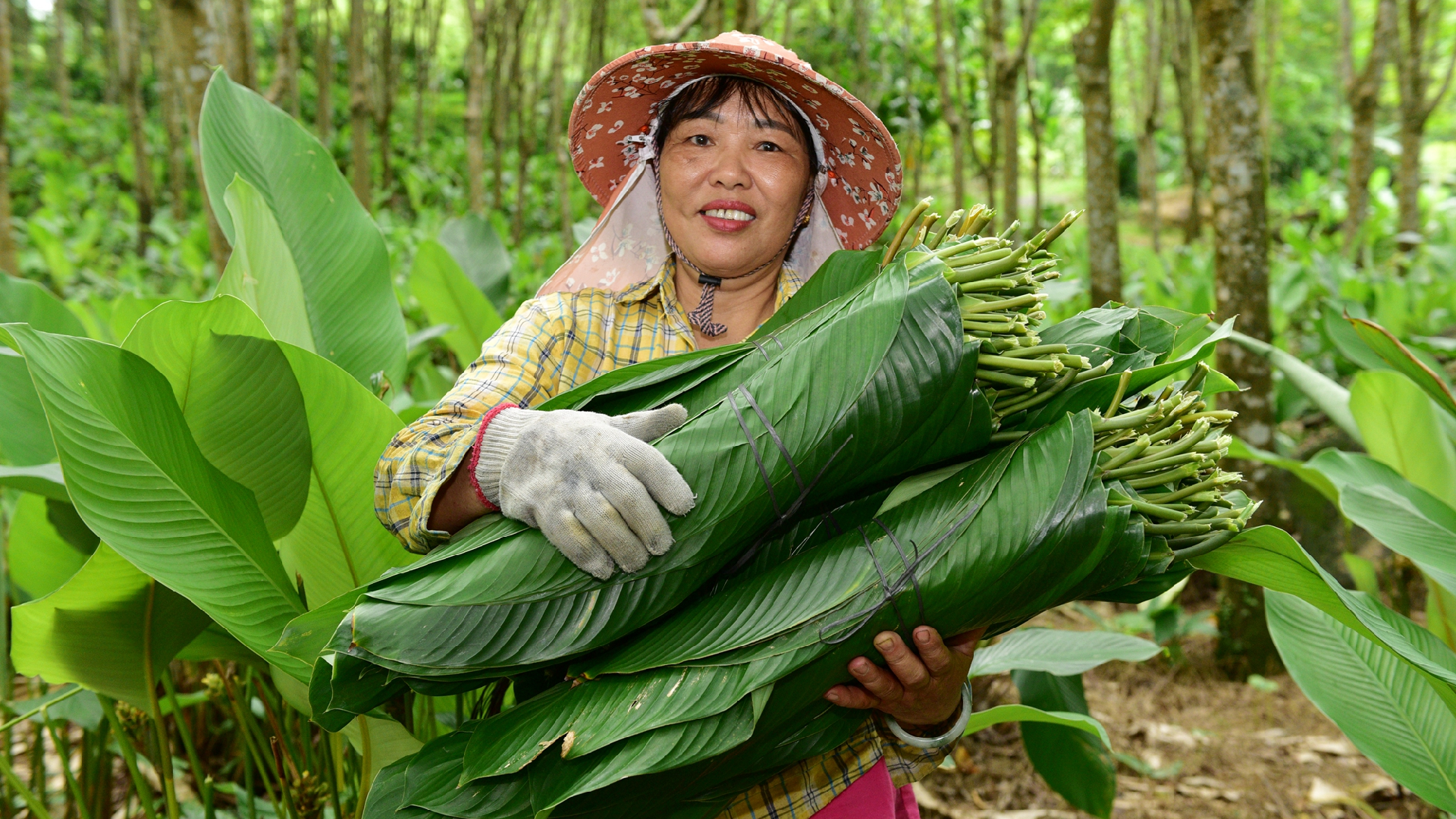Zongzi Leaves Symbolize Prosperity and Good Fortune in Traditional Chinese Culture
Yashipu Village farmers ready fragrant zongzi leaves to meet rising Dragon Boat Festival market demand.

As the Dragon Boat Festival draws near, the tranquil fields of Yashipu Village in Tunchang County, Hainan Province, have transformed into a hive of activity. Villagers are busy harvesting green, aromatic zongzi leaves—an essential ingredient for wrapping the traditional glutinous rice dumplings enjoyed during this time of year. The annual harvest here is significant, with about six million leaves gathered from roughly 45 hectares of farmland, all cultivated beneath the shade of rubber trees.
Dubbed the "Zongzi Leaf Village," Yashipu has become renowned for its innovative approach to agriculture. By utilizing the land beneath existing rubber plantations, farmers have efficiently diversified their crop production while maintaining the ecological health of their environment. The unique characteristics of the village’s leaves—including their flexibility, rich aroma, and considerable size—have helped them carve out a coveted position in the marketplace, particularly as the demand surges each year around the festival season.
This agricultural shift has brought about remarkable economic improvements for local families. According to village officials, the average household income has grown six times over in the past decade as a direct result of zongzi leaf cultivation. The continued popularity of traditional foods like zongzi ensures not only a steady market but also incentivizes sustainable farming practices and rural revitalization in the region.
While the Dragon Boat Festival places the spotlight on zongzi leaves, their utility extends throughout the year, underpinning a stable source of income for hundreds of families in Yashipu. Local leaders are optimistic that with ongoing investment, community training, and branding initiatives, the village will continue to thrive. As global interest in Chinese traditional festivals grows, so too does the reputation of Yashipu and its lush, verdant fields—a testament to how embracing tradition can cultivate a path to prosperity.




